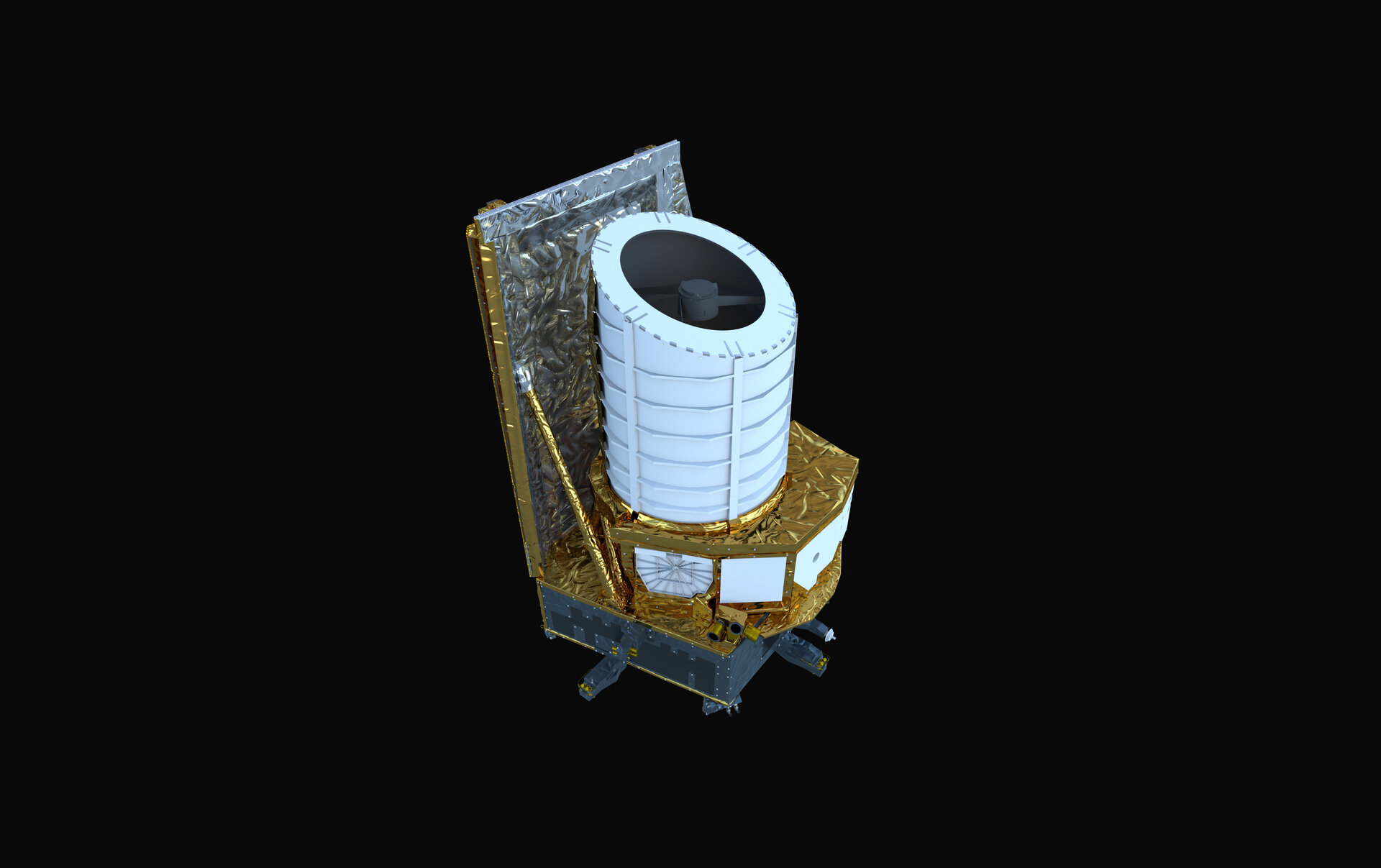Europe's Euclid space telescope moves closer to launch; will explore dark Universe

The European Space Agency's Euclid space telescope has moved a step closer to launch with the addition of a combined solar array and sunshield last week.
Designed to explore the evolution of the dark Universe, Euclid will launch from Europe's Spaceport in Kourou, French Guiana, in 2023. The telescope consists of two major components: the service module and the payload module - and will operate in a large halo orbit around a point known as the Sun-Earth Lagrange point 2 (L2).
Whilst the solar panels will provide the spacecraft with power, the sunshield will shade the instrument-carrying payload module from the Sun's intense radiation.
In the next step, engineers will add the communications antenna and then Euclid will be tested to ensure that it is ready for launch from Europe's Spaceport in French.
Just like humans, spacecraft can be energised by the Sun, but also damaged by its light and heat ☀️🛰️@Thales_Alenia_S engineers attached a combined solar array and sunshield to @ESA_Euclid last week, taking the mission one step closer to completion👉 https://t.co/mPSVg6hEMT pic.twitter.com/GcM9sS44Py
— ESA's Euclid mission (@ESA_Euclid) June 1, 2022
Euclid will make a 3D map of the cosmos by observing billions of galaxies out to 10 billion light-years, across more than a third of the sky. The telescope will reveal how the universe has expanded and how the structure has formed over cosmic history.
The mission aims to tackle some of the most fundamental questions in cosmology - How did the Universe originate? Why is it expanding at an accelerating rate today? Is dark energy real? Are there other as-yet-undetected massive particles in the Universe?
Euclid will be controlled from the European Space Operations Centre (ESOC, Darmstadt, Germany) and its science operations will be conducted from the European Space Astronomy Centre (ESAC, Villanueva de la Cañada, Madrid province, Spain).
- READ MORE ON:
- Euclid space telescope
- ESA Euclid
- cosmology
- ESA Euclid space telescope










